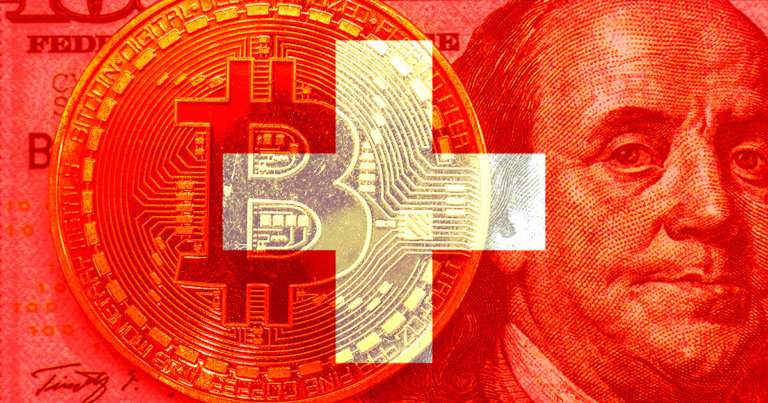 Swiss committee proposes banks hold a dollar for every dollar in Bitcoin exposure
Swiss committee proposes banks hold a dollar for every dollar in Bitcoin exposure Swiss committee proposes banks hold a dollar for every dollar in Bitcoin exposure
Banks will face the most strenuous requirements if they wish to be exposed to cryptocurrencies.

Cover art/illustration via CryptoSlate. Image includes combined content which may include AI-generated content.
Basel regulators said today that banks face the “most risk” from Bitcoin and other cryptocurrencies as they are tools for money laundering and a threat to the broader financial market.
*BITCOIN PUT IN HIGHEST RISK CATEGORY IN BANK CAPITAL PROPOSAL
— *Walter Bloomberg (@DeItaone) June 10, 2021
“The growth of cryptoassets and related services has the potential to raise financial stability concerns and increase risks faced by banks,”said the Basel Committee, which includes the Federal Reserve and European Central Bank.
It added, “The capital will be sufficient to absorb a full write-off of the cryptoasset exposures without exposing depositors and other senior creditors of the banks to a loss.”
What does it mean for Bitcoin?
The committee proposed a 1,250% “risk weight” to be applied to a bank’s exposure to Bitcoin and other cryptocurrencies. A “Risk-weighted” asset is a bank’s assets or off-balance-sheet exposures weighted according to the potential risk the bank faces in case things go awry.
Such a calculation helps determine the capital requirement for a financial institution for each asset, or assets, they hold. This would mean banks hold a dollar in capital for each dollar worth of Bitcoin they hold or store, based on an 8% minimum capital requirement cited by Bloomberg.
Capital requirements are set to be different for various types of cryptocurrencies. Tokens backed by, or tied to, real-world assets are likely to see a lesser capital requirement.
Public comments are now welcome on the proposal before it takes effect, and the committee could change the policies as and when the market matures.













































































































